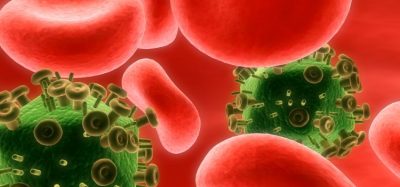FDA approves Rezlidhia™ for leukaemia
Posted: 2 December 2022 | Catherine Eckford (European Pharmaceutical Review) | No comments yet
Rezlidhia™ has been approved for adults with mIDH1 relapsed/refractory acute myeloid leukaemia by the US Food and Drug Administration (FDA).


Rigel Pharmaceuticals, Inc. has announced the US Food and Drug Administration (FDA) has approved its oral drug Rezlidhia™ (olutasidenib) for adults with relapsed or refractory (R/R) acute myeloid leukaemia (AML) with a susceptible isocitrate dehydrogenase-1 (IDH1) mutation.
The FDA approval was supported by open-label Phase II registrational study data, which showed a twice per day 150mg dose of Rezlidhia™ facilitated a complete remission (CR) + CRh rate of 35 percent of the 153 patients observed. Over 90 percent of those responders achieved CR.
The primary endpoint for the study was CR plus CR with partial haematological recovery (CRh). CRh is defined as less than 5 percent blasts in the bone marrow, no evidence of disease, and partial recovery of peripheral blood counts (platelets >50,000/microlitre and absolute neutrophil count >500/microlitre).
“The 25.9 months median duration of CR + CRh appears to be longer than currently available treatment options,” stated Dr Jorge E Cortes, Director, Georgia Cancer Center, Cecil F Whitaker Jr, GRA Eminent Scholar Chair in Cancer, and Phase II trial investigator.
Results from the acute myeloid leukaemia trial demonstrated the median time to CR or CRh was 1.9 months. Of the patients who achieved the primary endpoint of CR + CRh, 92 percent (47/51) were CR with a median duration of response of 28.1 months.
The efficacy-evaluable population was 147 patients who began the treatment at least six months prior to the interim analysis cutoff date and who had a confirmed IDH1 mutation.
Rezlidhia™ is a novel, non-intensive small molecule that reduces 2-hydroxyglutarate levels and restores normal cellular differentiation of myeloid cells in mIDH1 R/R AML detected by an FDA-approved test.
Clinical safety data of Rezlidhia™ for AML
Rezlidhia™ had an adverse event (AE) profile largely characteristic of symptoms or conditions experienced by patients with AML undergoing treatment. Differentiation syndrome was observed in 16 percent of patients and was manageable in most cases with dose interruption and corticosteroids. Hepatotoxicity, presenting as increases in liver function parameters, occurred in 23 percent of patients; most cases were manageable with dose modifications.
“Rezlidhia™ provides a new and important, oral therapy option for patients who typically have a poor clinical outcome,” concluded Raul Rodriguez, Rigel’s president and CEO.
Related topics
Anti-Cancer Therapeutics, Biopharmaceuticals, Clinical Development, Clinical Trials, Drug Development, Regulation & Legislation, Therapeutics
Related organisations
Rigel Pharmaceuticals, The US Food and Drug Administration (FDA)









